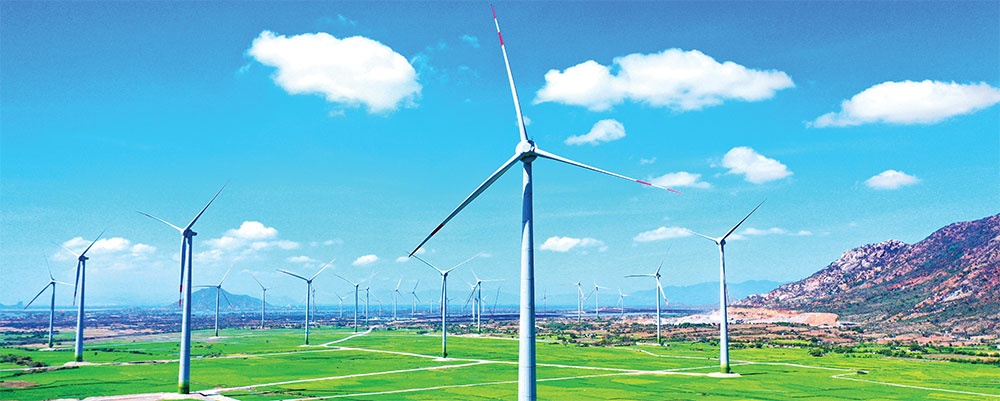Modern objectives to consider in developing electricity market
 |
| Modern objectives to consider in developing electricity market, illustration photo/ Source: Shutterstock |
In Vietnam, the Law on Electricity of 2004 outlines the principles of electricity market development, and the prime minister oversees the development and implementation of the electricity market development roadmap, the reorganisation plan of Electricity of Vietnam (EVN), and the power sector. Nonetheless, implementation is not always seamless. Organising the implementation of the Vietnamese retail electricity market, for instance, necessitates amending the pricing law in order to identify the distribution price and the system and market operation price, delaying the implementation of the retail market.
The fundamental conditions have been met, but the proportion of the electricity market is still low, making it difficult for the market to advance to a higher development stage.
Since July 2012, the electricity market has been operational in Vietnam’s competitive generation market, bringing with it some favourable results and forming a more professional legal system, technical infrastructure, and human resources.
During this time, the owners of the power plants themselves decided whether to connect to the grid and increase or decrease the generating set’s capacity. When the total cost of producing electricity makes up over 70 per cent of the cost of electricity sold to final consumers, the calculation of electricity prices in the market for electricity for each 30-minute transaction cycle has grown into a significant advance towards greater transparency of the production of electricity price as part of the total cost structure to final consumers.
Ten years have elapsed since the development of the electricity market, but there has been little improvement. Specifically, close around 60 per cent of power facilities on the electricity market have not yet participated, so competition in market operation cannot be guaranteed.
Currently, the proportion of participants in the electricity market is still low, and the fact that EVN must continue to sign long-term power purchase agreements (PPAs) and not through competitive forms in accordance with government and Ministry of Industry and Trade (MoIT) regulations may hinder the industry’s sustainable development. In comparison to the government’s roadmap for the development of the electricity market, this is the main reason why the transition to a competitive wholesale electricity market is two to three years behind schedule.
The MoIT has not yet authorised the Vietnam wholesale electricity market (VWEM) at this time, which renders the power corporations in the model in operation as of January 2019 to play only a passive role. Also, since there is still a mechanism for bulk supply tariffs, there is little incentive to limit risks in the electricity market.
Still, the influence of the electricity market on investment in novel sources is limited. Theoretically, the operation of the short-term market ought to produce new investment signals via the full market price and impact new investment drivers through the market or regulatory framework established on the market.
In Vietnam, the effect of the electricity market on investment decisions for new power sources is becoming more and more evident. Firstly, in negotiation of electricity prices with independent power producers, where build-operate-transfer is a direct negotiation and feed-in tariffs or avoided costs for renewable energy are a negotiation without competition. Secondly, the MoIT’s governing circulars pertaining to the construction and approval of the electricity generation price framework serve as the basis for price negotiation; there are no provisions pertaining to the spot electricity market.
Currently, the electricity market is advancing at the VWEM level, but only five additional distribution corporations – EVN member entities – have joined the buyer side, and there have been no participants from outside EVN. In addition, the government has not issued the direct PPA prototype mechanism. This is an effective mechanism on the wholesale electricity market for encouraging businesses to develop renewable power sources and reducing EVN’s input costs for the production of electricity.
In accordance with the roadmap, the fiercely competitive retail electricity market has been operational since 2014. Therefore, it is necessary to supplement and modify the Law on Electricity and related regulations in order to expand the wholesale market and permit participation in VWEM by businesses other than EVN.
In addition, concluding the legal corridor for the implementation of the electricity retail market, which includes the electricity distribution price, the electricity system dispatching price, and the electricity market transaction management price and cross-compensation, is contingent on amending the Law on Pricing in the near future.
Furthermore, it is essential to revise and add to regulations pertaining to relevant circulars regarding the determination of electricity generation prices, power purchase and sale contracts, and the resolution of PPA agreement issues.
 | Firms ponder impact of new electricity hike Vietnam last week raised its average retail electricity price by 3 per cent, in a move that could put upward pressure on inflation. |
 | Vietnam's power sector faces difficulties integrating renewable electricity The accelerated expansion of solar and wind energy is straining the national power grid. |
 | Reliability remains issue in Vietnam’s electricity policy Vietnam’s energy issues are still prevalent, even after it bumped up the electricity retail price earlier this month. |
(*) Nguyen Thai Son, Former staff director, National Steering Committee for Electricity Development
What the stars mean:
★ Poor ★ ★ Promising ★★★ Good ★★★★ Very good ★★★★★ Exceptional
Related Contents
Latest News
More News
- Trung Nam-Sideros River consortium wins bid for LNG venture (January 30, 2026 | 11:16)
- Vietnam moves towards market-based fuel management with E10 rollout (January 30, 2026 | 11:10)
- Envision Energy, REE Group partner on 128MW wind projects (January 30, 2026 | 10:58)
- Vingroup consults on carbon credits for electric vehicle charging network (January 28, 2026 | 11:04)
- Bac Ai Pumped Storage Hydropower Plant to enter peak construction phase (January 27, 2026 | 08:00)
- ASEAN could scale up sustainable aviation fuel by 2050 (January 24, 2026 | 10:19)
- 64,000 hectares of sea allocated for offshore wind surveys (January 22, 2026 | 20:23)
- EVN secures financing for Quang Trach II LNG power plant (January 17, 2026 | 15:55)
- PC1 teams up with DENZAI on regional wind projects (January 16, 2026 | 21:18)
- Innovation and ESG practices drive green transition in the digital era (January 16, 2026 | 16:51)

 Tag:
Tag:



















 Mobile Version
Mobile Version